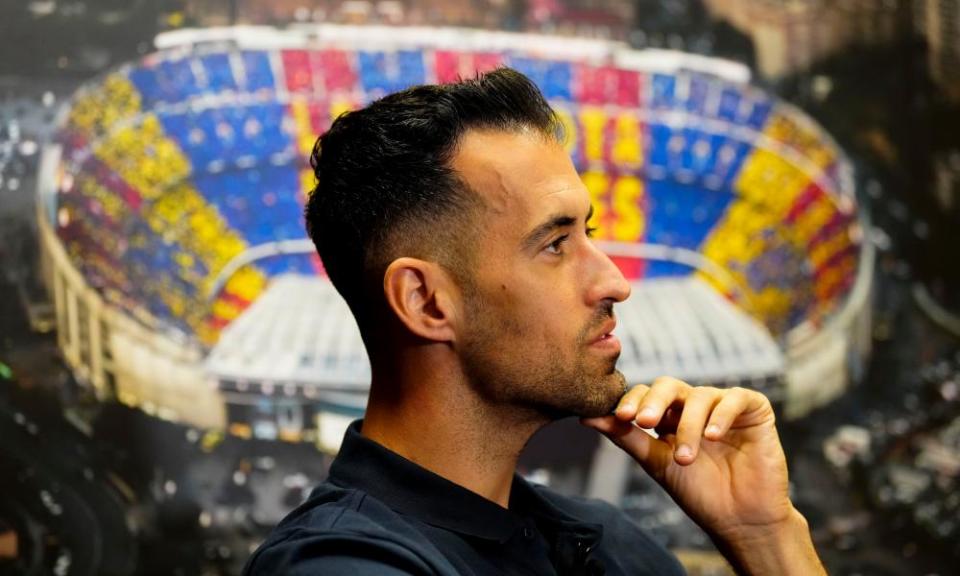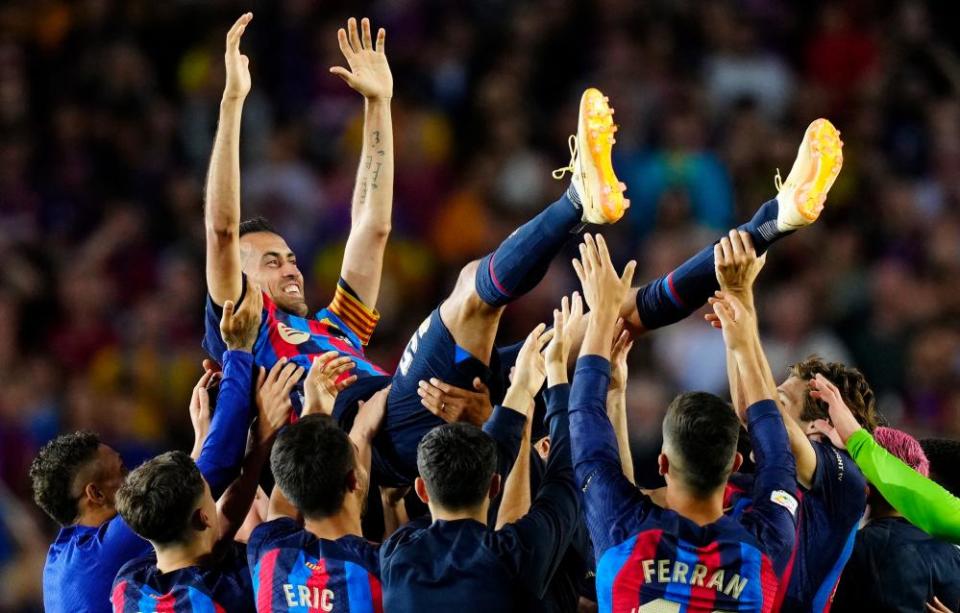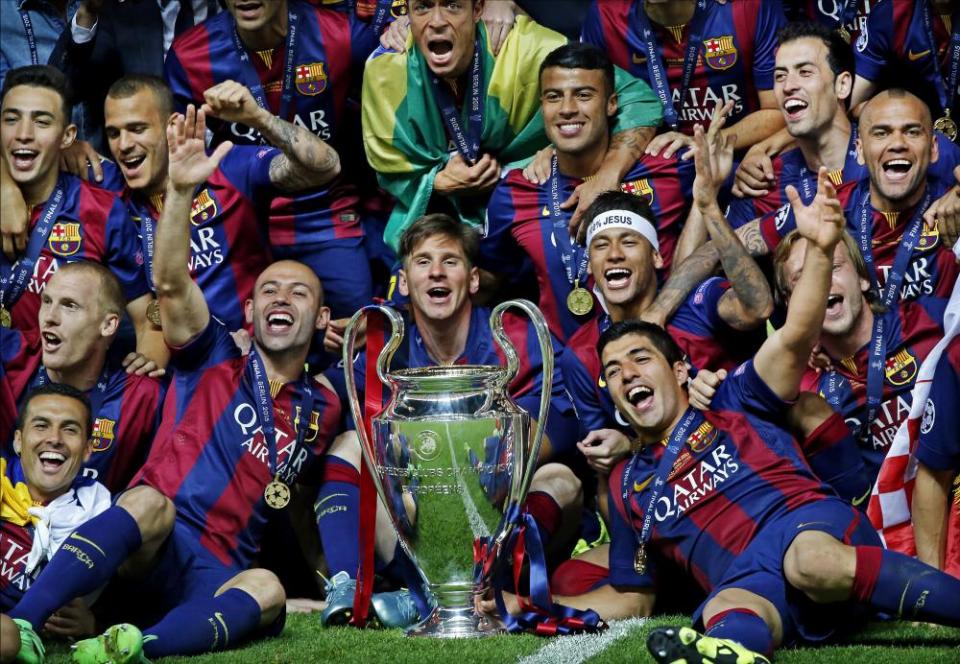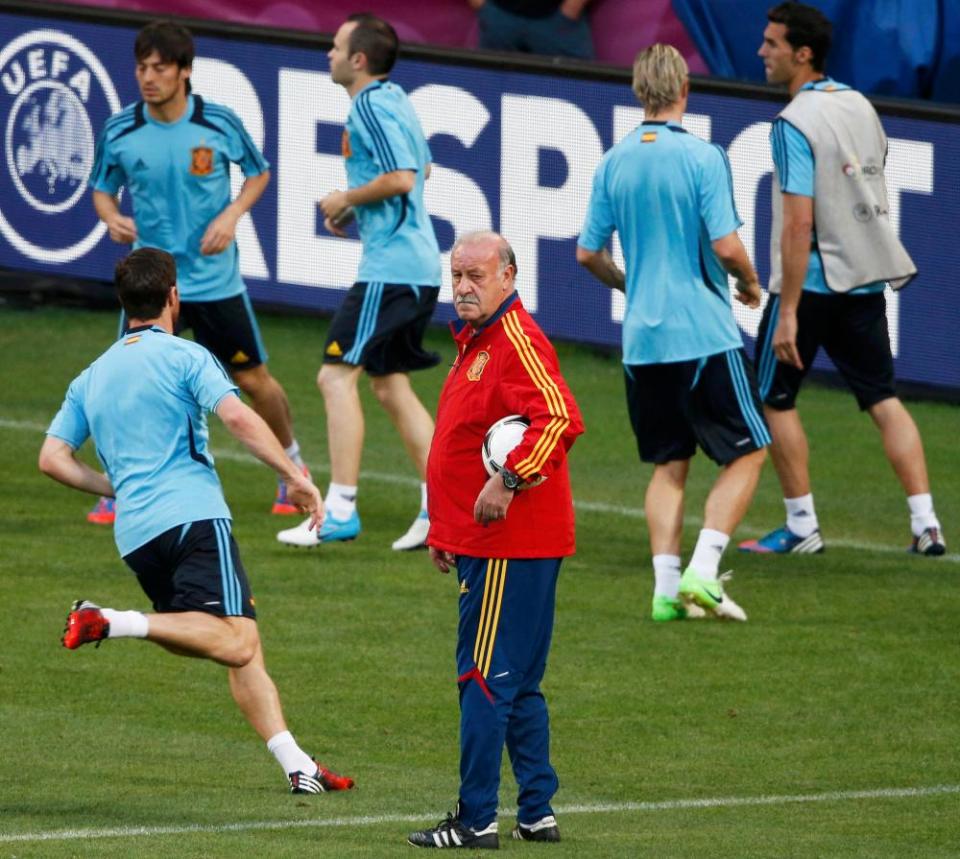Sergio Busquets: ‘You have to control everything – it’s like chess … I calculate it all’

There was something heist movie about it, the story taking shape one man at a time, like the opening scenes from a film. First Andrés Iniesta announced he was leaving Japan. Then Sergio Busquets bade farewell to Barcelona. The next day, so did Jordi Alba. That afternoon, Paris Saint-Germain’s coach, Christophe Galtier, confirmed Lionel Messi was going. All in suspiciously quick succession, destination as yet unrevealed. It was easy to imagine a plot being hatched, to hear the deep voice of the Hollywood trailer: they had been the best; now the old gang was getting back together for one last job.
These are not just former teammates, who produced arguably the finest football ever seen; they’re best mates too, people Busquets says share “the same culture, the same jokes, the same upbringing”. At Busquets’ goodbye at the Camp Nou on Thursday, Messi signed off his video message with an “I love you”, while Busquets describes the Argentinian not only as the “best player of all time” but the pair of them as “personalities that fit, who trust each other”. Iniesta refers to Busquets as a “brother”. And Busquets, asked which player he could most confide in over the years, who’s the funniest and who the grumpiest, cracks up when the answer to all three is Alba.
Related: Karim Benzema signs deal to join Saudi Arabia’s Al-Ittihad from Real Madrid
Sorted, then. All it needs is a name, this crime caper. Busquets laughs. “Nah,” he protests, smile stretching across his face. “I still don’t have plans, honestly. I do have three or four options but nothing is done. I don’t want to play for any European team: it would be hard to face Barcelona with anything serious in play, and I want to live a calmer, more relaxed experience. I would like things to get sorted quickly over the next two or three weeks. The decision will be mine and my family’s, just ours. All of us have decisions to make now and maybe we will coincide, but there’s no plan.”
Busquets is sitting in a back room at Barcelona’s San Joan Despi training ground, his workplace since the first team moved here from the tiny pitch alongside the stadium in 2010. So many hours have been spent here, where teammates call him the policeman. “I’m about to turn 35 – it’s the right time,” he says. “There isn’t a single moment that makes up my mind. The last two or three years have not been the best. I was clear I wanted to finish the right way: feeling important still, playing regularly, starting, lifting titles as captain. I wanted this [next] experience too.”
Whatever it is, wherever it is, whoever it is with, it will be new. How it could ever compare is another matter. As he looks back on it all and forward to where he will go next Busquets knows he will miss this, as he has missed the men who left first. He didn’t expect a career at the Camp Nou, he says, let alone one like this.
An admirer of Patrick Vieira, he began the 2008-09 season in the third tier and ended it winning everything there is to win. The following year, he won the World Cup; the year after, the Champions League again, with a performance something like perfection; and the year after that, the European Championship. And in 2015, there was the treble – another one. In the 15 years since his first-team debut, beginning a Barcelona career that redefined the game and closed on Sunday night, leaving with his ninth league title, there were 34 trophies. So choosing a favourite season isn’t easy.

Turns out, it is none of them. “Playing in tercera was the year I enjoyed the most,” Busquets says, going back to where it all began. Tercera may not sound so lowly but it doesn’t really mean third division: there were six divisions higher and their league was split across 380 teams in 17 regional groups. The season opened on an astroturf pitch at a municipal sports centre in front of a few dozen people and closed in a place not much bigger with promotion for the team and another one for the coach and the central midfielder he taught, the footballer who most played like him.
“It was like you’re playing with friends, without pressure, without the spotlight, with a coach who was the best in the world but at that time no one knew it,” Busquets says. “Pep [Guardiola] is special, the best coach I’ve had. What he has achieved is very difficult. Go to Germany, win. Go to England, win. With very good teams, yes, but he makes every team better, playing his way that he wants. He evolves too, tries new things: John Stones going into the middle or the ful- backs’ role. He’s always thinking: what can I improve?
“It was like I did a Master’s with Pep that year: everything I learned, the things he taught me, everything he got across to you in training sessions. You played just one game a week, trained well. Going up to the first team was a radical change. Except that it was the same as the year with the B team, only bigger: more fans, more noise, more spotlight, more media attention, …”
You don’t like that? This, in fact. “Not much,” Busquets says, a little apologetically. “Bit by bit, I assimilated where I was, what it meant, what it means for kids especially, and I accepted it. But it was very hard for me at first. There’s a big difference between what’s on the pitch and what’s off it. On it, opponents had a higher level but I also found that I had much more space. I went from playing on small pitches, artificial ones. I felt comfortable, motivated. I had done pre-season with the first team but I was still with the B team in Segunda B. They would decide day-to-day whether I trained with the first team.
“I didn’t play the first game of the season against Numancia but then I played against Racing Santander. We drew, I was happy with how I played and everyone was congratulating me, although I still had no expectations. But then it was: ‘Stay with us today.’ The next day: ‘Stay.’ Then ‘stay’, ‘stay’… I played against Sporting in the third game and that was the moment when I don’t go back.”
By the end of the season, with Busquets a regular, Barcelona had won the first treble in Spanish football. Another followed in 2015, under different management.
“The treble with Guardiola was a bit more choral, more the group. The Luis Enrique treble was more about the three players up front who made all the difference; we were there to compensate,” Busquets says. Compensate is quite the word to use, but he explains it well, applied to defence and attack and more about thought than just fitness: “We could stretch Ivan [Rakitic] out to the wing or even Andrés [Iniesta] so that Leo could come to receive inside, utilising the space we had made. We also had Ney [Neymar] who gives you one-on-one and the counterattack. I remember Bayern away: they were attacking all the time and had two clear chances but the counter we had: goal.”

At the Camp Nou counter can seem like a dirty word, but Busquets insists: “If you have players like that, you have to. And I’m sure that Ney’s full-back isn’t going to attack so much after that. If teams dared to press us high, we had Luis [Suárez] and Leo with [only] two centre-backs, which benefited us a lot. It was all worked on, mechanised. I had Luis Enrique twice, with Barcelona and Spain, and he’s a very good coach. He’s clear, demanding, a leader, but he explains everything, shows you exactly what he wants.”
While we’re on the coaches, what then of Xavi? “He is a legend as a player and has brought enthusiasm and tranquility to the club as a coach: we’re in good hands” Busquets says. “He’s more agitated as a coach than he was as a player. I don’t want to imagine what it’s like for the fourth official! When you misplace a pass he gets annoyed. The relationship has to change a bit now. We joke, remember old times, but he’s the coach and we have our ‘spaces’, our roles. There have to be lines and I’m on the other side. But we’ve understood that very well, there’s respect and we talk a lot: I’m the captain.
“You have to put what he’s doing into context too. We are in a very different situation as a club than we were with Pep or Luis Enrique. The economics are different and that’s the most significant thing when it comes to getting players in. When Xavi can get the players and the signings he wants for his style, then we’ll see. I wouldn’t call his style the same as Pep’s but it’s similar: he wants the ball. Bit by bit I think we will be more Barcelona-like.”
Then there’s Vicente del Bosque. These have been difficult years with the national team, in part perhaps because the bar was set so high and Busquets admits he misses those early successes. There is an analysis of the failures in 2018 and 2022, Busquets discussing the best ways past deep defences, how hard that is, and fondness for those moments of success. Euro 2012 was won despite serious fault lines through the squad. José Mourinho had arrived at Madrid on a mission to knock Barcelona off their perch and decided that one way was to torch the national team, seeking confrontation, opening a divide. The tension, Busquets admits was “real and very strong”.
“It’s always important to have a good group, but in this case it wasn’t the strength of the group [that won],” he admits, a slight scoff underlining how significant the breakdown had been. “But, well, we were able to live with it, with each other. Vicente was a very good person: he told us that for the sake of the group we had to have a cordial relationship. Not [be] friends, but [have] no problems.”

“He’s a coach who handled players very well. He was simple, calm and as brief as possible: four tactics and lots of liberty. He was a great man-manager.” After Spain lost the opening match of the 2010 World Cup, Del Bosque defended Busquets from attacks back home, insisting that if he could be a footballer again, he would like to be like Busquets. “That was very emotional: it was the first game and for the whole of Spain it was my fault. I was young, I hadn’t played at the Euros, it was on me. It was a hard time but they all supported me.”
If there was paternalism there, there was also play. Del Bosque had seen something different in Busquets: a player who would redefine the role of the pivot, who defines it now as “a very mental position”. Never the fastest, nor the strongest, he is tall, skinny, even slightly awkward. Sitting here he doesn’t look much like a footballer, which may be why he has been such a good one. There are a couple of moments when he’s talking about the next generation that seems eloquent. When asked who is most like him, he mentions Rodri and Martin Zubimendi, but also admits: “It won’t be easy; they’ll do other things.” And when he thinks about the kids, he says with a laugh: “They make you feel even older, and they’re better prepared than ever physically.” But then he pauses, signals his head and adds: “But not here.”
What, then, is going on in there during a game? What are the thought processes that made Busquets better? “You have to control everything: it’s like chess. Do your opponents play with two forwards? A second striker? A line of three? You have to know where the spaces are, how to generate them. If your full-back attacks, who has to take that position? You have to know that, know who’s there. I calculate everything: where my teammates are, where are the opponents, what can happen in a play. A loose ball, a rebound.
“It’s learned, studied: you do it lots of times, and once you have it all under control it becomes intuitive. But to start with you have to know where everything is, what can happen. I would have to be alert to everything; that’s your role. From in there you give a lot of orders. In fact, lots of coaches would tell me that after a certain point in the game I should be alert to the bench so that they could tell me what the changes and substitutions are so I can apply those. You’re always thinking. The tiredness is more mental than physical.”

Listening to Busquets talk, to the analysis; watching his hands draw shapes and formations, fingers as players; hearing him dissect teams, from Spain to Barcelona, Manchester City to Inter, it seems implausible that he won’t be a coach. “I am going to try,” he says. “I would like to get my licence and prepare myself for it. I have an idea. The difficult part is managing a dressing room with 25 players, all with their egos. I’m interested to see if I can communicate with them, and convince them of what I want.”
That, though, can wait for just a little while. What Busquets wants now is something he’s never had: a change of pace. Time for something else, one last job.

 Yahoo Sport
Yahoo Sport 




































































